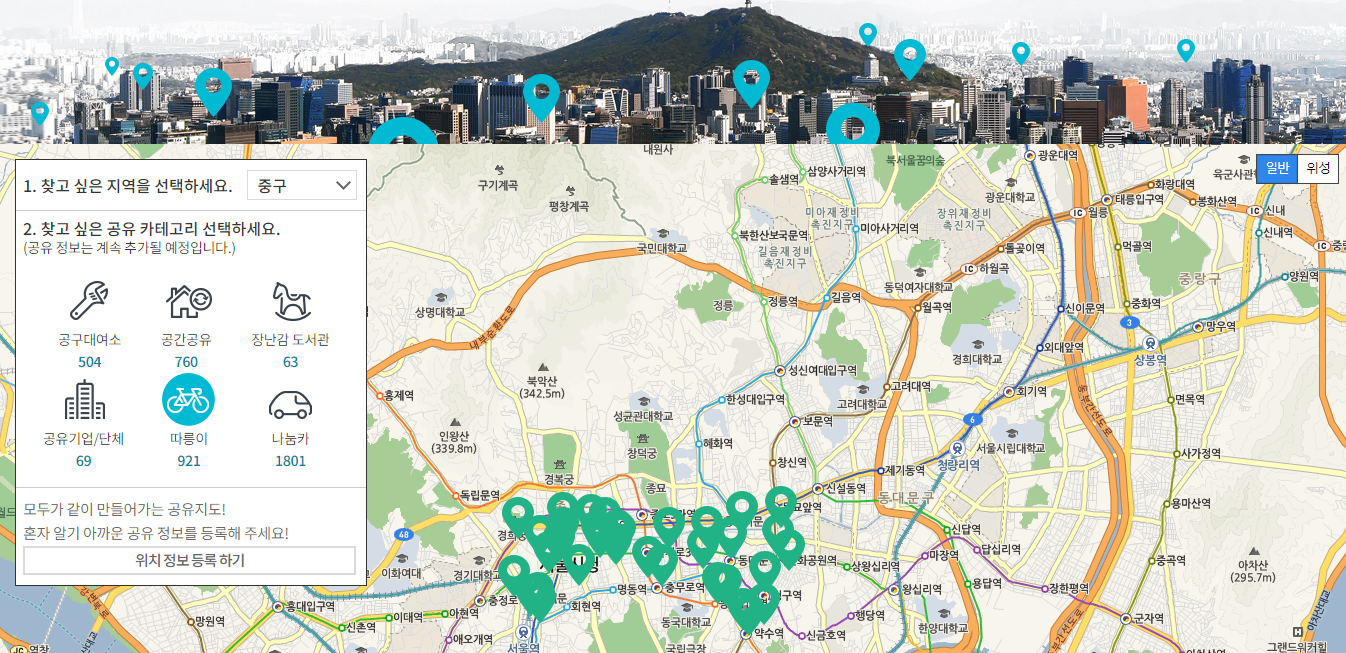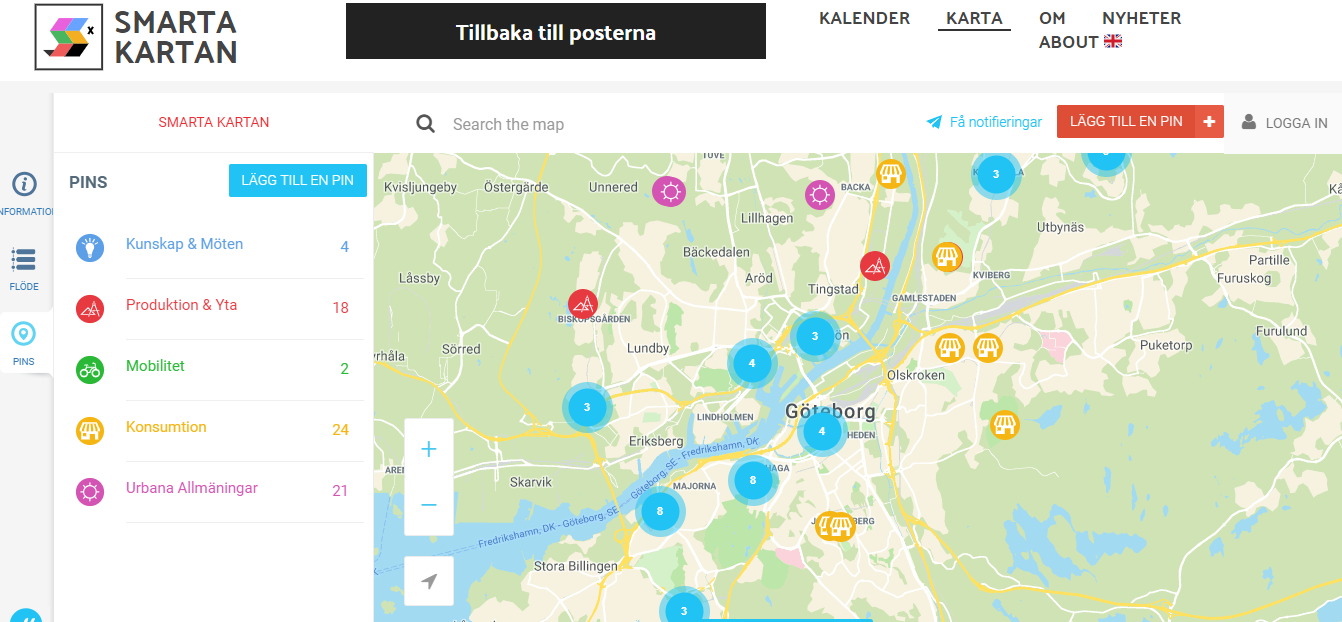List
Story > NEWS > Detail
What makes a sharing city work for its citizens?
- Best practices from Seoul & Gothenburg
Understanding what a real sharing city looks like is for the moment at least, an exercise of the imagination. But we are beginning to see a number of cities across the world developing strategies and activities that seek to generate social, environmental and economic value from embracing and adopting the sharing economy and the principles that underpin it. Because citizens need to be able to find their local online and offline sharing economy, some pioneering cities have already started to provide them the means to make it more tangible and accessible.
<Sharing City Seoul Resources>
- Solve Urban Problems Through Sharing
To solve urban challenges Seoul, the world's first sharing city, developed the Sharing City Seoul project which "aims at mitigating various social challenges by promoting the shared use both public and private resources, while boosting civic engagement and supporting local businesses at the same time". Seoul Metropolitan Government proclaimed the Sharing City Seoul initiative on September 20, 2012, along with a plan to implement sharing projects closely related to the lives of citizens and to establish and broaden the foundation for sharing. Seoul Metropolitan Government sees "the Sharing City Seoul initiative as social innovation measures designed to create new economic opportunities, to restore reliable relationships, and to reduce waste of resources with a view to resolving economic, social, and environmental problems in urban areas all together."

Sharing City Seoul is made in collaboration by various parties. Seoul Metropolitan Government develops and implements various policies that provide the foundation for the sharing city initiative while sharing companies and organizations share their expertise and join hands in many collaborative projects. ShareHub promotes the value of sharing to citizens through its online and offline channels and connects the city government, companies, and citizens all together. Among their projects, Seoul now has implemented a Seoul Sharing City Map where everyone can find the nearest sharing economy options. As the map shows, it gives the opportunity to access various services, from housing to mobility, from playground areas to bike sharing options.
<Sharing City Gothenburg>
- The sharing opportunity
Gothenburg, the second largest city in Sweden, has experienced trough the years several challenges. The city is one of the most segregated in Europe and is dependent on the fossil industry. At the same time, multiple initiatives promoting sharing and collaboration at local level started growing, until the city was officially elevated to the status of "Sharing City".
Following the same path of Seoul, Gothenburg created the Smarta Kartan (The Smart Map), a digital map showing more than a hundred sharing initiatives where you can rent, borrow, share, swap, and give in Gothenburg. SmartaKartan was codesigned by the City of Gothenburg and Collaborative Economy Gothenburg, inspired by the momentum and attention observed during the Global Sharing Day 2014 event. Through Shareable's MapJam events from 2014-2017, where citizens map the city together, and seeing the political support for the collaborative movement, the smart map was born.

"We have created a smart map to inspire the people of Gothenburg to live more sustainably and to discover collaborative activities - City of Gothenburg"
The Smart Map aims to make it easier for the people of Gothenburg and visitors to the city to live sustainably by encouraging a sense of community, facilitating new ways of linking up, and promoting access rather than ownership. The Smart Map highlights current and upcoming activities and networks throughout the city. The map shows ‘bike kitchens’, where people can learn to fix their own bikes, as well as exchange groups and clothing exchange days, give-away shops, and digital platforms.
- Best practices from Seoul & Gothenburg
Understanding what a real sharing city looks like is for the moment at least, an exercise of the imagination. But we are beginning to see a number of cities across the world developing strategies and activities that seek to generate social, environmental and economic value from embracing and adopting the sharing economy and the principles that underpin it. Because citizens need to be able to find their local online and offline sharing economy, some pioneering cities have already started to provide them the means to make it more tangible and accessible.
<Sharing City Seoul Resources>
- Solve Urban Problems Through Sharing
To solve urban challenges Seoul, the world's first sharing city, developed the Sharing City Seoul project which "aims at mitigating various social challenges by promoting the shared use both public and private resources, while boosting civic engagement and supporting local businesses at the same time". Seoul Metropolitan Government proclaimed the Sharing City Seoul initiative on September 20, 2012, along with a plan to implement sharing projects closely related to the lives of citizens and to establish and broaden the foundation for sharing. Seoul Metropolitan Government sees "the Sharing City Seoul initiative as social innovation measures designed to create new economic opportunities, to restore reliable relationships, and to reduce waste of resources with a view to resolving economic, social, and environmental problems in urban areas all together."

Sharing City Seoul is made in collaboration by various parties. Seoul Metropolitan Government develops and implements various policies that provide the foundation for the sharing city initiative while sharing companies and organizations share their expertise and join hands in many collaborative projects. ShareHub promotes the value of sharing to citizens through its online and offline channels and connects the city government, companies, and citizens all together. Among their projects, Seoul now has implemented a Seoul Sharing City Map where everyone can find the nearest sharing economy options. As the map shows, it gives the opportunity to access various services, from housing to mobility, from playground areas to bike sharing options.
<Sharing City Gothenburg>
- The sharing opportunity
Gothenburg, the second largest city in Sweden, has experienced trough the years several challenges. The city is one of the most segregated in Europe and is dependent on the fossil industry. At the same time, multiple initiatives promoting sharing and collaboration at local level started growing, until the city was officially elevated to the status of "Sharing City".
Following the same path of Seoul, Gothenburg created the Smarta Kartan (The Smart Map), a digital map showing more than a hundred sharing initiatives where you can rent, borrow, share, swap, and give in Gothenburg. SmartaKartan was codesigned by the City of Gothenburg and Collaborative Economy Gothenburg, inspired by the momentum and attention observed during the Global Sharing Day 2014 event. Through Shareable's MapJam events from 2014-2017, where citizens map the city together, and seeing the political support for the collaborative movement, the smart map was born.

"We have created a smart map to inspire the people of Gothenburg to live more sustainably and to discover collaborative activities - City of Gothenburg"
The Smart Map aims to make it easier for the people of Gothenburg and visitors to the city to live sustainably by encouraging a sense of community, facilitating new ways of linking up, and promoting access rather than ownership. The Smart Map highlights current and upcoming activities and networks throughout the city. The map shows ‘bike kitchens’, where people can learn to fix their own bikes, as well as exchange groups and clothing exchange days, give-away shops, and digital platforms.



